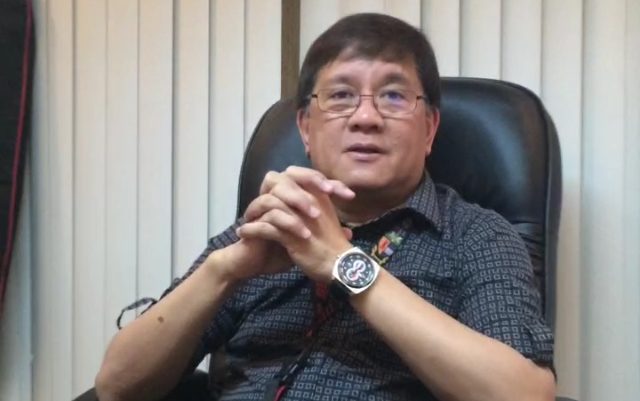SUMMARY
This is AI generated summarization, which may have errors. For context, always refer to the full article.

MANILA, Philippines – President Rodrigo Duterte’s declaration of a state of lawlessness after a deadly blast in Davao City on Friday evening, September 2, initially put the nation on edge.
But a law school dean said there is nothing to worry about when it comes to exercising rights and freedoms.
Father Ranhilio Aquino of the San Beda Graduate School of Law told Rappler on Saturday, September 3, that Duterte’s move is salutary. “That assures the nation that we have a Chief Executive who is not going to let things get out of control.”
Duterte issued the declaration to ensure “coordinated efforts” between the police and the military in the government’s fight against terrorism and illegal drugs.
Aquino added that a state of lawlessness has “no immediate and direct effect on people, on citizens in the exercise of their rights.” (READ: What’s a ‘state of lawlessness’?)
Its only effect, he said, “is [the President] announcing, I will probably call out the military.” Aquino said that this presidential power to summon the armed forces in response to lawlessness is granted under Article VII of the 1987 Constitution.
“It’s first of all informative. It also alerts the military to the possibility that their commander-in-chief may ask them to aid the police in enforcing the law,” Aquino said.
He also said that the declaration of a state of lawlessness “can be a prelude to the President asking the legislature for a grant of emergency powers.” A “state of lawlessness” can go on for an indefinite amount of time – unlike the 60-day period set by the Constitution for the imposition of martial law.
As for the government’s efforts to heighten security, following the attack, Aquino said that these are legal and constitutional, subject to certain limitations.
Limits
“For example, a searching officer at a checkpoint cannot forcibly open your glove or baggage compartment. He has to ask you to do that, and you have to consent,” he said. “My suggestion is if you’re asked to do so, please cooperate, because you may just arouse suspicions.” (READ: Scared of checkpoints? Know your rights)
“Let’s allay the fear of the citizens: the declaration of a state of lawlessness does not in any way entail the curtailment of any of our freedoms and liberties,” Aquino added.
What is more worrisome, said the dean, “is the determination of the Abu Sayyaf and other groups to sow disorder and discord in the nation.” The Abu Sayyaf reportedly claimed responsibility for the blast.
“If it can be so unconscionable as [setting off] a bomb in the midst of a very harmless gathering, that’s really the height of unconscionability.”
The government, he added, has to be resolute in its response, “subject to all the guarantees that the Constitution grants us under a rambunctious democracy.”
Different from Martial Law
However, it’s a different story if martial law is declared, said Aquino, “because there are certain rights that are really dealt with in a very direct manner.”
He reiterated that placing parts of, or the entire country, under martial law can only be justified on two grounds: invasion or rebellion, when the public safety requires it. (READ: Martial Law 101: Things you should know)
Said Aquino, “The Constitution severely constricts the powers of the President if he declares Martial Law:
- He must be certain that there is a rebellion, and the public safety and public welfare will require it [martial law]. Even if there is a rebellion, if it can be easily quelled or handled by the military, there is no need to declare martial law.
- Congress, without need of being summoned, can vote and can rescind the declaration.
- The factual basis for its declaration may be questioned before the Supreme Court.
“But we’re not there yet, and I don’t even foresee that we will get there,” Aquino emphasized.
A former dean of the Ateneo School of Government, Tony La Viña, agreed with Aquino and said that while there seems to be no reason to worry about a “slippery slope” toward a permanent and unconstitutional regime, there is a need to be vigilant. – Rappler.com
Add a comment
How does this make you feel?
There are no comments yet. Add your comment to start the conversation.